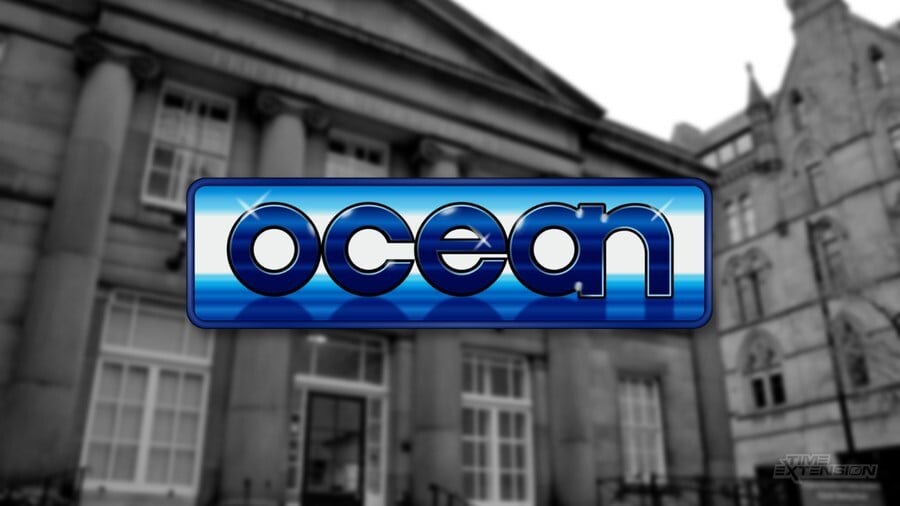
If you grew up playing games in the '80s or '90s, you've probably encountered more than a few titles featuring the name Ocean Software. The Manchester publisher/developer was prolific back in the day for releasing computer and console ports of popular arcade games as well as titles based on films and celebrity licenses.
Some of the most notable games it released during the years it was active (1982 to 1998) include popular titles based on Century Electronics' Hunchback, the Olympian Daley Thompson, Gryzor (the European release of Konami's Contra), RoboCop, Jurassic Park, The Addams Family, Platoon, Rambo, and Batman. This is in addition to the countless other projects released for machines as diverse as the BBC Micro, Commodore 64, ZX Spectrum, Amstrad CPC, NES, SNES, the Sega Mega Drive, and N64. Throughout the time the studio was open, it was home to star programmers like Paul Owens, Jonathan "Joffa" Smith, Tony Pomfret, Mike Lamb, and many more — all of whom had a part to play in building Ocean Software's fabulous reputation among a generation of players.
While Ocean had various offices throughout the almost twenty years that it was in operation (including at the now-demolished Ralli Buildings and two different locations in Deansgate-Castlefield), most of its games were developed right in the heart of Manchester in a Quaker Meeting House tucked away behind the city's central library. 6 Central Street, as the site was officially called, is the location most commonly associated with Ocean Software, as well as its long legacy of hits. So, as a result, we wanted to pay tribute to the space with the help of as many former employees as would be willing to lend us their thoughts. Many of its former staff shared with us the incredible story about how they first arrived at Ocean, as well as some of the chaotic anecdotes of what it was like to work at this iconic location. But before we get into all that, it's probably best we go over a quick recap of the company's origins.
Ocean's Beginnings
In 1983, David Ward and Jon Woods founded Ocean Software under the name Spectrum Games as a mail-order business, where they published arcade conversions created by local enthusiasts. The company continued in this manner for a few short months before a decision was made to bring on board a sales director in the form of former Imagine employee Paul Finnegan. Finnegan helped the company to get into retail stores and convinced it to change its name to something else, leading Jon Woods to suggest "Ocean" (a name he allegedly stole off a van that happened to pass by the window at the correct moment).
It was at this point the company moved into its very first set of offices at Ralli Buildings (which no longer exists) near the River Irwell and brought on board some of its first full-time programmers, including the ZX Spectrum programmer Paul Owens and the Commodore 64 programmers Bill Barna and Dave Collier. Here it released arcade conversions like Kong (a clone of Nintendo's Donkey Kong for ZX Spectrum), as well as ports of Century Electronics' Hunchback for the Spectrum, Oric, and Commodore 64.
"Ralli Buildings was famous at the time because it was the first ever reinforced concrete building, which also meant that when we were working there, it was extremely old and falling down," Bill Barna tells us.
Moving To Central Street
As the business grew in size, the company decided to move from the decrepit Ralli Buildings to another location at 6 Central Street, in order to have more room. This new building was positioned behind the city's central library and was an active Meeting House for Manchester's Quakers that had been around ever since 1828. Ocean Software initially only occupied the top floor of this building, with the basement being used as a place to house stock, and it was here in this initial cluster of rooms that early hits like Daley Thompson's Decathlon were developed.
However, in 1985, Ocean began to need more room yet again to keep up with its big aspirations. So, as a result, it cleared out the basement and moved its development teams downstairs with the administrative staff remaining on the floors above. At the time, this was an unpopular decision with the existing programmers due to its dank and gloomy interior, but the staff eventually got used to it affectionately nicknaming it "The Dungeon".
It is here where most of Ocean's games were programmed throughout the mid-to-late 80s with developers divided into different rooms depending on what they were working on. Ocean employees would enter 6 Central St via a door to the side of the building (with the main entrance for Quaker friends being at the front of the building on Mount Street). And from there, they could either go up a set of stairs to the main offices or travel through a door on their right to immediately head down some stairs into the basement. Here's what former Ocean employees remember about the building and their time at Ocean.






Comments 7
Man, I think you could turn this into a short physical book/mag.
This was really fun to read! I hope to see a similar article covering other companies such as Imagitec Design.
Certainly a big Article, brilliant read. What amazing times they were. These programmer's were like gods to me. Loved OCEAN, used to cut out the stunning box art ads from the magazines and stick on my bedroom wall as a young teenager. No doubt working there at the time would of been my dream job as well.
The batman game was really good
Excellent article, well done!
What a great article 😀 Really nice to read about my heroes from the past 👍
Awesome article. Thank you
Show Comments
Leave A Comment
Hold on there, you need to login to post a comment...